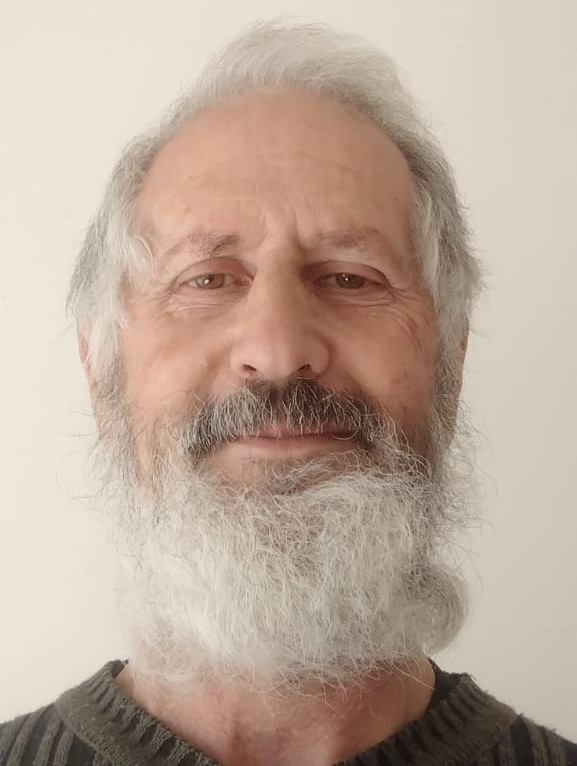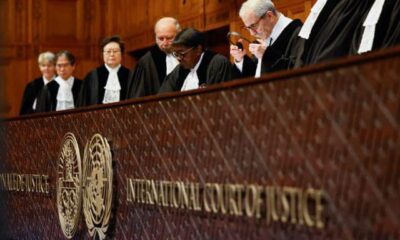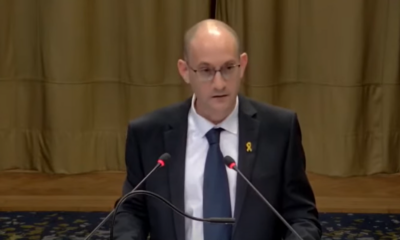
OpEds

The curious perversion of international criminal justice
The application by International Criminal Court (ICC) Chief Prosecutor Karim Khan for warrants of arrest for war crimes against Israeli Prime Minister Benjamin Netanyahu and Defense Minister Yoav Gallant amount to an indictment against the state of Israel and all its citizens. Netanyahu, for better or for worse, is its democratically elected leader. Gallant controls a citizen army.
Both Israel and the United States (US) have refused to accept the jurisdiction of the ICC. The US didn’t sign the Rome Statute of the ICC – the Genocide Convention. The actions of the Arab countries in seeking to have the transfer of the population onto occupied land declared a war crime was ample reason for Israel to decline to become a signatory. The Americans went further, and introduced The American Service-Members’ Protection Act, widely known as The Hague Invasion Act, to prevent US officials and military personnel from being prosecuted by a foreign court to which the US isn’t a signatory.
The ICC has long been regarded as a political body. These warrants would have been applied for only because the ICC recognises the “state of Palestine”. Arrest application was also made against three members of Hamas: Yahya Sinwar, Mohammed Deif, and Ismail Haniyeh, and the announcement that Netanyahu and Gallant would be charged was made in the same announcement about the Hamas figures, outraging many. The announcement of the warrant applications was also made on CNN, rather than through official channels, deepening suspicion of a political motive.
The Biden administration publicly condemned the issue of the warrants, and threatened consequences if issued. Not only was the ICC ready to proceed against a non-signatory to the convention, but it was done at the behest of a party not recognised as a country by the US. No doubt Biden must have diplomatically waved The Hague Invasion Act at Khan. This Act provides that if any ally of the US participated in an attempt to arrest an American or an American ally, then action against that country could be taken. Republican senators were more outspoken, and sent a letter warning Khan not to issue arrest warrants stating, “Such actions are illegitimate and lack legal basis, and, if carried out, will result in severe sanctions against you and your institution.” When Khan replied that he wouldn’t be threatened, he must have been acutely aware that the Trump administration had imposed sanctions on ICC Chief Prosecutor Fatou Bensouda.
The US, England, the Czech Republic, and Austria issued immediate condemnation. The White House declared, “The ICC has no jurisdiction in this situation, and we don’t support its investigation.” House Speaker Mike Johnson called on the Biden administration to “immediately and unequivocally demand that the ICC stand down”. The Senate Foreign Relations Committee claimed it was absurd, and Senator Lindsey Graham was the most righteously outraged. Not only did he confirm that there had been bipartisan meetings with the ICC previously, but that “Prosecutor Khan’s team was supposed to be in Israel today [20 May] to arrange a meeting for next week with the prosecutor’s office about the allegations. I was told by the ICC staff that the investigation would likely take months and not weeks, and there would be meaningful consultation with the state of Israel.” He then also published on X, “The ICC lied to me. I will work diligently with colleagues from both sides of the aisle in both Houses to impose severe sanctions against the ICC.”
Khan, however, claims that warrants against the Israelis are based on evidence collected and examined by his office. He has suggested that seven charges should be preferred, summarised as first, starvation of civilians as a method of warfare; second, wilfully causing great suffering; third, wilful killing or murder; fourth, intentionally directing attacks against a civilian population; fifth, extermination and/or murder including death caused by starvation; sixth, persecution; and seventh, other inhumane acts. It’s not clear what evidence has been collected, but in all likelihood, it’s evidence provided by the United Nations Relief and Works Agency for Palestine Refugees in the Near East (UNRWA) and the Gazan Health Authorities, both of which have been shown to be highly partial and in certain respects completely discredited.
Most of the charges are generic, and might apply to any conventional war situation. Possibly the most serious charge is the use of starvation as a weapon of war. The statements from the United Nations, echoed largely by UNRWA and recycled at the International Court of Justice, are that mass famine is imminent and there will be thousands of deaths by June. Khan claims evidence of malnutrition, dehydration, and death of babies, children, and women. Hamas records don’t seem to suggest that any death from starvation has actually taken place. There’s an abundance of evidence that Israel is facilitating large amounts of food going into Gaza. One of the people I follow on X, IMSHIN, on a virtual daily basis shows the markets in Gaza and quotes the prices of the food available for sale. Israel’s immediate and obvious defence to the starvation and obstruction charges is found in the convention. Countries are required to allow humanitarian aid into affected areas on condition that the aid reaches the civilian population and isn’t being seized by enemy forces. There’s abundant evidence that Hamas has been misappropriating vast amounts of aid.
The ICC is “a court of last resort”, and can act against persons accused of war crimes, crimes against humanity and/or genocide. However, as a court of last resort, the ICC is governed by the principle of complementarity, which provides that “a case is inadmissible before the ICC if it’s currently under investigation by a state with jurisdiction over it”. In other words, the ICC may claim jurisdiction only in circumstances where a national legal system fails to act, or to do so in a genuine manner.
Khan confirms having visited Israel after the October massacre. At the time, he stated, “Israel has trained lawyers who advise commanders and a robust system intended to ensure compliance with international humanitarian law.”
Israel’s competence to investigate and the ability of its legal system was seen in its handling of the World Central Kitchen (WCK) incident in which WCK aid workers were killed by the Israel Defense Forces, while travelling in vehicles at night and seemingly accompanied by armed personnel. The Israeli legal system worked quickly. Investigation, trial, and seemingly harsh sentences were imposed rapidly, and the record made available for official scrutiny.
There doesn’t seem to be any reasonable doubt that Israel has the jurisdiction to pursue any such charges and is actively doing so. Based on his own personal investigation and statements, Khan cannot reasonably believe that the ICC can claim to exercise jurisdiction or issue warrants of arrests against the Israelis.
Khan’s application to have war crimes warrants of arrests issued is dabbling with former US Defense Secretary Donald Rumsfeld’s “known knowns” and “known unknowns”. “Known knowns” would probably include huge political fallout; rejection of these charges as being unjustified or politically inspired; political action against the ICC; that the principle of complementarity hasn’t been complied with; and that Khan broke his word to American politicians and has acted contrary to the ICC statute. Kahn will be identified by a bipartisan group of powerful politicians as a political pawn in lawfare against Israel. More problematic “known knowns” are that Israel will be wrongfully criminalised again; and America will take some form of action against the ICC and/or Khan. The major “known unknowns” are what the political cost will be; how this will affect future prosecution of leaders acting against non-state actors; and whether the process that has now been initiated by Khan will fatally delegitimise the court
- Craig Snoyman is an advocate of the high court, practising in Johannesburg.










